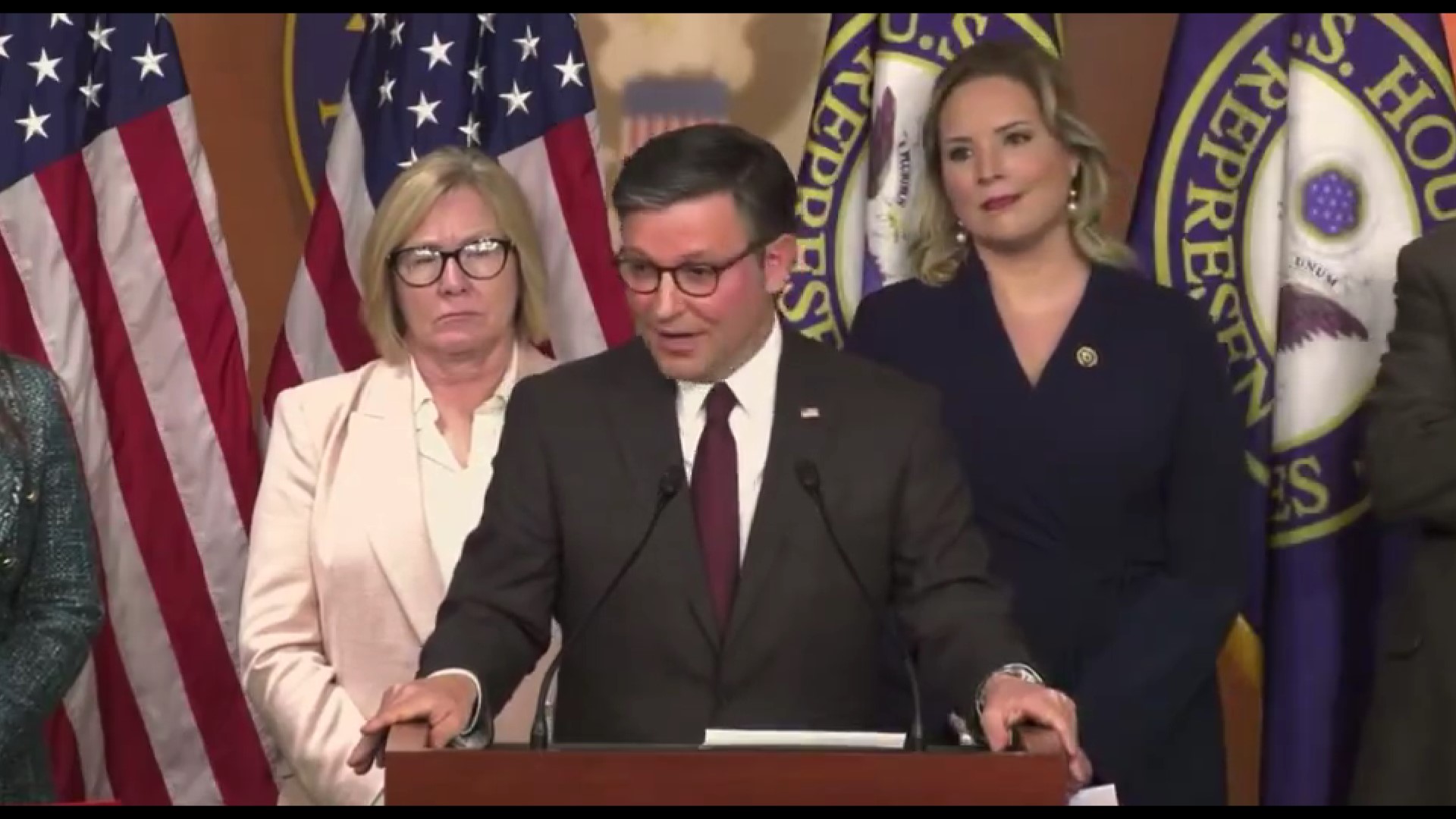A tense White House meeting reveals Speaker Mike Johnson’s resistance to aid for Ukraine unless tied to stringent border policies. The article explores the potential impact on Congress approving emergency security assistance, sourcing information from The New York Times.
In a pivotal White House meeting, Speaker Mike Johnson’s firm stance against President Biden’s push for Ukraine aid, linked to border policy changes, adds complexity to a crucial legislative deadlock. Insights from The New York Times illuminate the unfolding political challenge.
Johnson’s Ultimatum:
Speaker Mike Johnson insists that the House won’t consider Ukraine aid without a more robust U.S.-Mexico border crackdown.
Republican demands for strict immigration measures pose a challenge to approving Biden’s request for emergency assistance to Ukraine.
White House Meeting Dynamics:
President Biden urges bipartisan action to fund Ukraine’s defense capabilities against Russia.
The meeting emphasizes the urgent need for air defense and artillery funding for Ukraine, underlining the repercussions of Congress’s inaction on national security.
Optimism Amid Border Deal Discussions:
Democrats express optimism about finalizing a bipartisan border deal, potentially clearing the path for Ukraine aid.
Senator Schumer highlights the importance of a bipartisan approach, signaling increased chances of agreement.
Senate Republicans’ Hopeful Stance:
Senate Republicans, including Senator McConnell, anticipate a Senate vote on a national security spending bill combining border measures with aid for Ukraine and Israel.
The proposed plan aims to address concerns from both parties, emphasizing the unique opportunity for bipartisan collaboration.
Challenges and Divisions:
Johnson’s continued warnings suggest potential resistance in the House, emphasizing the need for substantive changes at the border.
Deep divisions among Republicans regarding the border compromise complicate the legislative landscape.
Biden’s Diplomatic Efforts:
President Biden emphasizes the global consequences of failing to support Ukraine in its resistance to Russian aggression.
The administration addresses concerns about the strategy, endgame, and accountability for aiding Ukraine.
The article reflects on the intricacies of the political standoff, highlighting the delicate balance required to navigate both domestic immigration concerns and international security priorities. It underscores the challenges of achieving bipartisan consensus on two complex and intertwined issues.
The intertwined nature of Ukraine aid and border policy underscores the broader implications of legislative decisions on national security. The article emphasizes the need for a nuanced approach to address both issues simultaneously, recognizing the potential ripple effects on global stability.
In conclusion, the article summarizes the critical points of contention, emphasizing the uncertain fate of Ukraine aid based on the ongoing border policy deadlock. The need for diplomatic maneuvering, bipartisan collaboration, and careful negotiation is underscored as Congress grapples with these intertwined challenges.
This analysis is based on information sourced from The New York Times, providing valuable insights into the evolving dynamics surrounding the legislative standoff over Ukraine aid and border policy changes.



